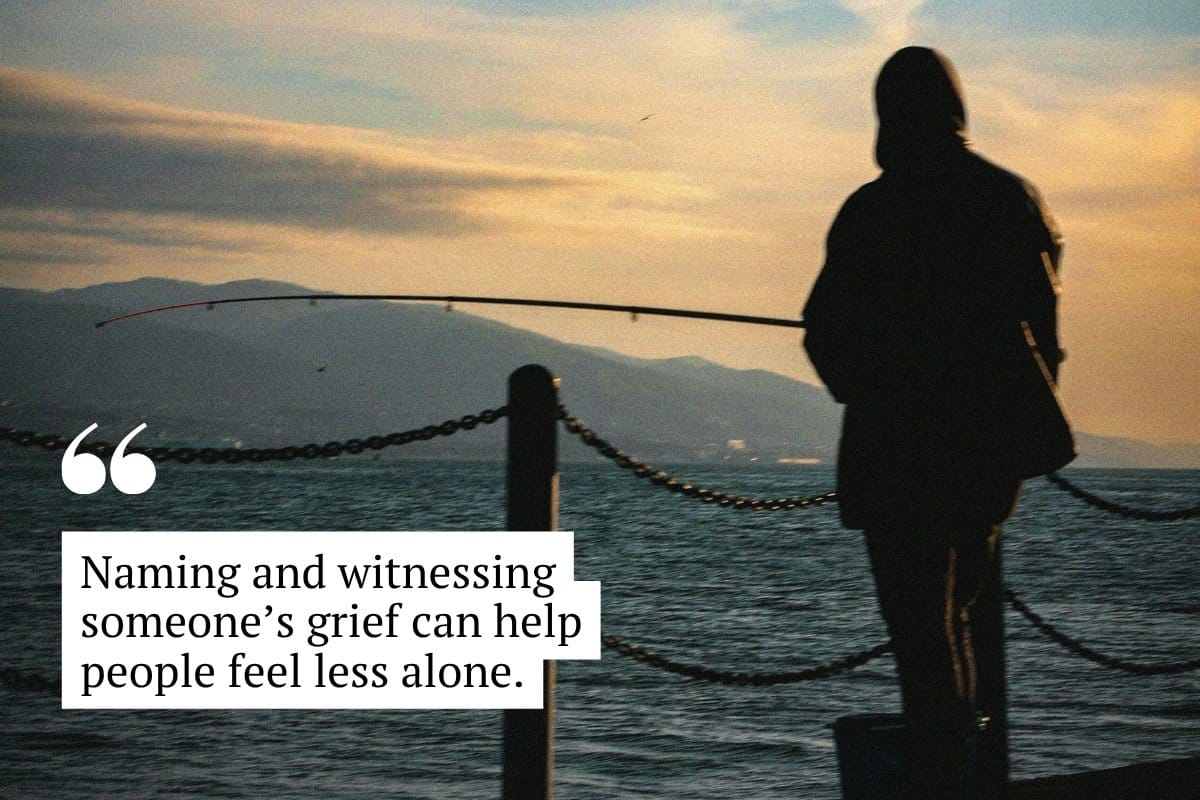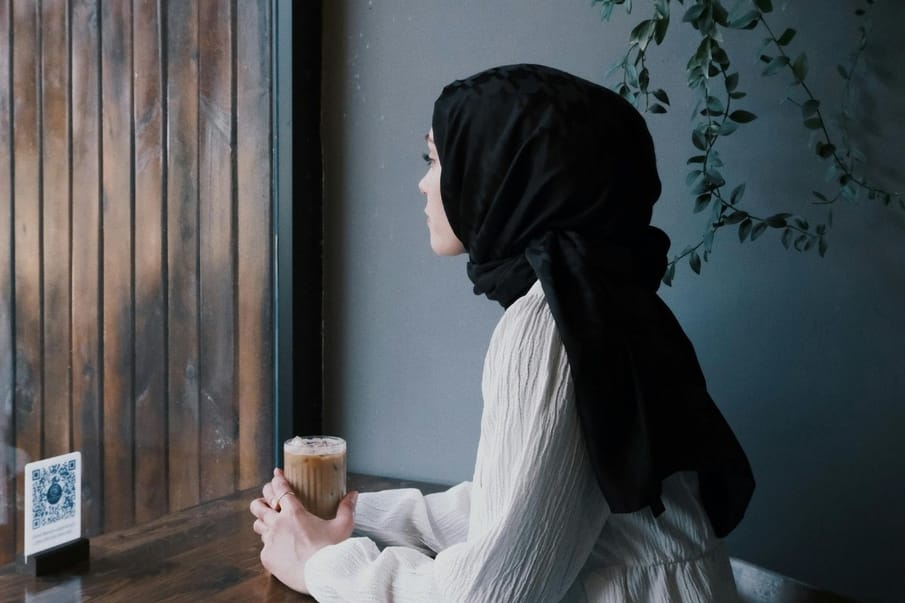When your grief doesn’t fit the ‘mould’ of what others expect, it can feel unacknowledged – making it all the harder to deal with. Here, we’re explaining the concept of ‘disenfranchised grief’, and how you can support yourself, and others, through the process
Grief is something that can feel impossible to navigate. Yet most of us know that when someone we love dies, certain things tend to happen: friends rally round; neighbours deliver food parcels; sympathy cards arrive in the post; and funeral arrangements are made. Western society is well-versed in acknowledging this kind of grief, but what about the other forms of grief that can go unrecognised?
Grief can be complex. A friend of mine recently lost an estranged parent, and, in the aftermath, experienced family members dismiss his sadness, implying that his lack of contact meant he had no right to grieve. Someone else I know lost all of her possessions in a house fire, and, despite informing her employer of her loss, her work output was expected to remain unaffected. These are examples of the various, valid forms of grief that deserve to be witnessed with compassion.
What exactly is disenfranchised grief?
The term ‘disenfranchised grief’ relates to any form of grief that is unacknowledged or dismissed by wider society. While it can be regarding the death of a person, disenfranchised grief can occur through various experiences of loss, such as the passing of a pet, the end of a marriage or friendship, or coming to terms with a parent’s dementia diagnosis. In particular, there tends to be a lack of ritual around the loss, which means no opportunity to gather and grieve as with a traditional funeral.
Why is it a problem?
“A huge consequence of grief not being socially recognised, is that it can lead to isolation and loneliness – neither of which are conducive to mental health or being able to process grief,” explains Nova Reid, author of The Good Ally and expert on race and mental health. “This can lead to delaying grief, questioning your own reality, and poses a risk to seeking support.”
What that support looks like is unique to the individual, but we know that bereaved people who have more contact with family and friends tend to report better quality of life, as noted in the Journal of Loss and Trauma. Similarly, in a survey of 372 grieving people, published in PLOS One in 2021, researchers concluded that emotional support, and acts of emotional concern, were the primary requirements for grief support.
What causes it?
There can be multiple contributing factors to this kind of grief, one of which can be time limits imposed by others. Being saddened by the loss of a sibling who passed away decades ago is valid. If you choose to skip the university freshers’ party because you’re processing the grief of leaving home, that’s OK. Grief is not a linear process.
Another potential source for disenfranchised grief can be if your loved ones have strong personal opinions on whatever it is you’ve lost (a person or a thing), which can make it seem like they’re less supportive, or dismissive, of your grief. This could be a same-sex relationship your parents didn’t approve of, or a pregnancy that your friends said was ‘too soon’. Comments that downplay or invalidate what you’ve been through can leave you feeling as though you’ve been denied the chance to fully grieve, or get the support you need.
How you grieve can also be a source of judgement – especially when there’s no universal way to react. With a breakup, you might feel you’ve also lost your shared home, social life, and future plans. While some find going ‘no contact’ with an ex is best, others may want to keep some form of communication for mutual emotional support. There’s no right or wrong way to process grief, so create a grieving process that works for you.

Solo support
So, in the face of disenfranchised grief, what can be done to take care of your wellbeing? You may be tempted to opt for distractions, if the emotions feel too big to deal with on your own, but this could potentially prolong the agony.
“Because this kind of grief is often not acknowledged socially, it’s important to acknowledge your feelings, don’t bypass them,” says Nova. You may want to talk things through with a counsellor, or you could try journaling. “I wrote a letter to my best friend, writing all the things I wished I’d said, and still want to say, to her,” says Nova.
It can be helpful to embody your emotions, especially anger. “Healthy anger release can help let go of some of the intensity of emotion, like screaming into a pillow, or discharging energy through exercise,” says Nova.
And when sparks of happiness do break through, don’t let them pass by unnoticed. “When there is joy, allow it in,” says Nova. “People often feel guilt about joy during this time, but joy and pain can co-exist – experiencing joy is not a betrayal to their memory.”
Helping others
If someone you love is affected by disenfranchised grief, Nova advises to de-centre your own discomfort, and acknowledge their pain. “Naming and witnessing someone’s grief can help people feel less alone,” she explains. “Whatever the loss, they are hurting. Ignoring that can compound isolation, or communicate that their experience of loss doesn’t matter.”
Approaching conversations about grief is tough, but try not to use this as a reason to avoid reaching out. Nova suggests simply acknowledging they’re going through a hard time, and that you want to be there for them. Continue to show support by checking in regularly – even if they’re unresponsive, it’s essential to let them know you care.
While well-intentioned, Nova says that asking the griever to stipulate what support they need can “put the burden of problem-solving on someone who may already be overwhelmed with emotions”. Instead, she suggests sending a list of ways you can help (making food, doing the school run, talking on the phone), and allowing them to choose.
Finally, Nova advises preparing to support them long-term by marking their significant loss date in your calendar. “Sending a message, a card, or arranging time to spend time together in a meaningful way can help people feel cared for, especially in the years that follow.”


Comments